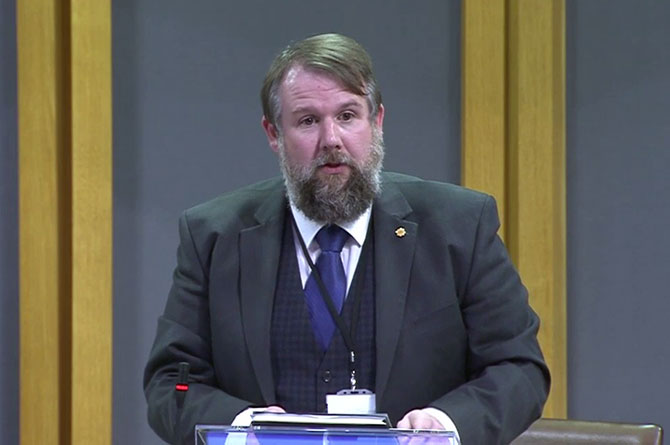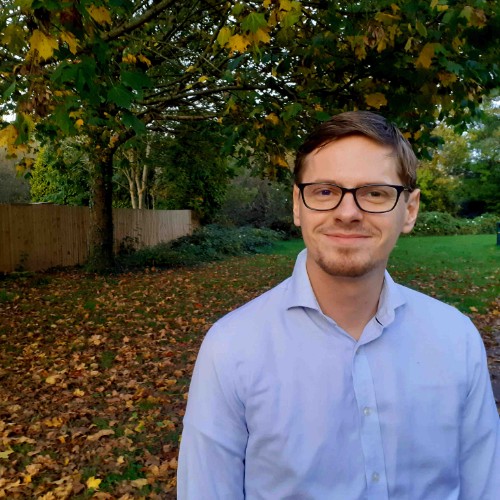A SENEDD member called for Wales to establish overdose prevention centres to save lives, reduce harm and protect communities.
Peredur Owen Griffiths warned that the number of drug deaths in Wales is up more than 50% over the past ten years, with the rate remaining higher than in England.
Mr Owen Griffiths, who chairs the cross-party group on substance use and addiction, said maintaining the status quo would do nothing to tackle shameful drug deaths in Wales.
He told MSs: “By almost any measure you want to look at, the war on drugs has failed.”
He said overdose prevention centres (OPCs) – hygienic safe spaces, where people can take drugs safely – have been adopted by 14 countries, including the US, Canada and Australia.
The Plaid Cymru MS argued OPCs, which have sterile equipment and staff who can respond immediately to an overdose, have proved a remarkable success internationally.
He told the Senedd: “They can also provide a gateway to a myriad of services that could lead to the drug users kicking the habit or, at the very least, becoming healthier, better supported and, therefore, more likely to stay alive.”
He added OPCs help reduce litter that poses a significant health hazard, warning of open injection of heroin and discarded needles a stone’s throw from one Cardiff primary school.
Mr Owen Griffiths raised a rapid evidence review into overdose prevention centres which found that they reduce harm, save lives and promote wellbeing.
He said OPCs reduce the risk of transmission of blood-borne diseases and help marginalised members of society to access services.
He warned the UK Government has been too slow to react to the spread of more dangerous synthetic drugs, stressing: “We can’t delay. Because if we do, more people will die.”
Mr Owen Griffiths told the chamber MSs heard from Pat Hudson, whose son Kevin was found unconscious in a locked public toilet in Carmarthen in December 2017.
He said: “After injecting drugs, he suffered a cardiac arrest and a brain haemorrhage. His family made the heartbreaking decision to switch his life support machine off.
“He was just 32-years-old. Pat herself said her son and several of his friends would be alive today if there had been somewhere safe to go for them to inject drugs.
“It is time we listen to people like Pat, take heed of the international success stories and learn the lessons of 50 years of failed drug policy in the UK.”
Lynne Neagle said Wales’ drug policy is rooted in a harm-reduction approach which recognises substance misuse is a public health issue as well as a criminal justice one.
Responding to the short debate on March 20, the then-deputy minister for mental health told MSs that Welsh Government investment in the substance misuse agenda will top £67m next year.
Ms Neagle, who has since been appointed education secretary, pointed out that Welsh ministers increased funding for frontline services by nearly £3m despite the most challenging budget ever.
She said Wales has introduced access to Buvidal, a medicine used to treat dependence on opioids, which is helping more than 1,700 people.
Ms Neagle stressed that powers to take forward overdose prevention centres remain at Westminster and the Home Office has poured cold water on the idea.
Ms Neagle said her officials are in close contact with counterparts in the Scottish Government, which is aiming to open the UK’s first overdose prevention centre.
She told MSs proposals from drugs charity Kaleidoscope for a safe injecting pilot at the Huggard centre in Cardiff would require an agreement with South Wales Police.
Ms Neagle explained this would ensure the project would not be a policing priority and prosecution of workers or users would not be in the public interest.
She said: “Without that agreement, our understanding is that due to legal implications under the Misuse of Drugs Act 1971, it would not be permissible.
“Given the interest and scrutiny that the establishment of such a project would also attract, it would need to be robustly established, with the support of a wide range of stakeholders, including the local community.”


















